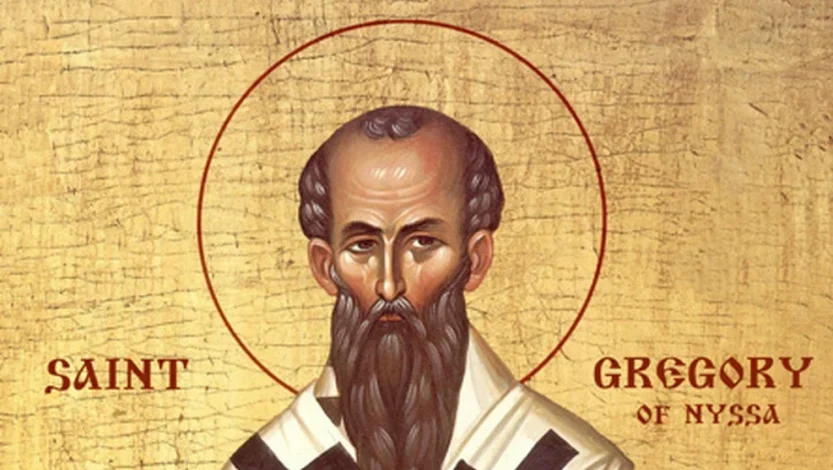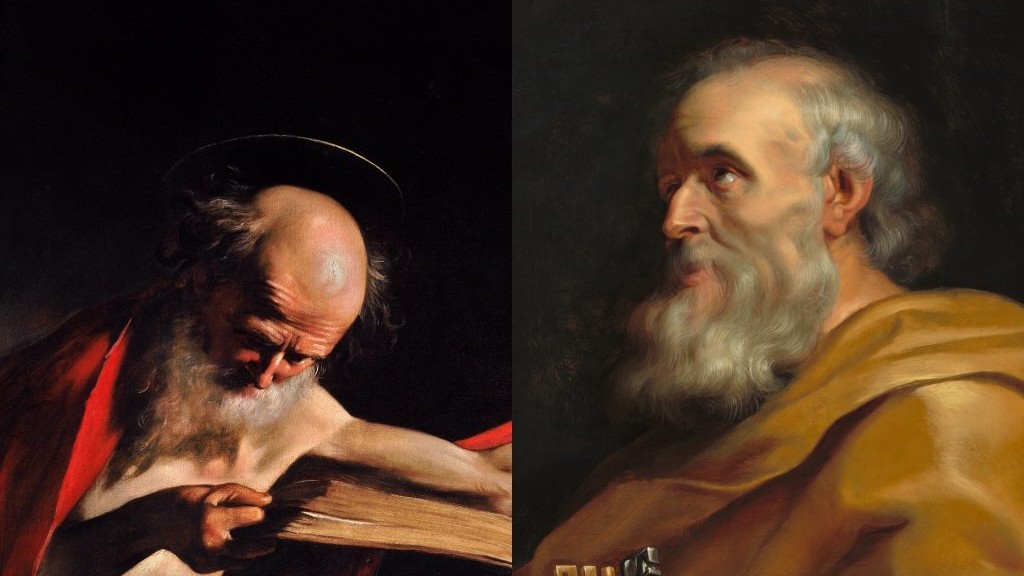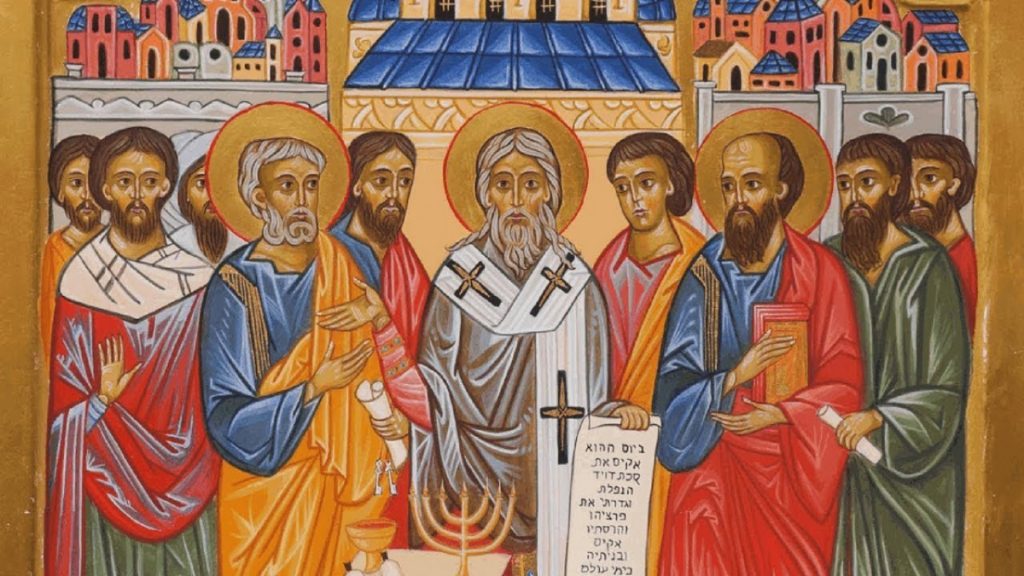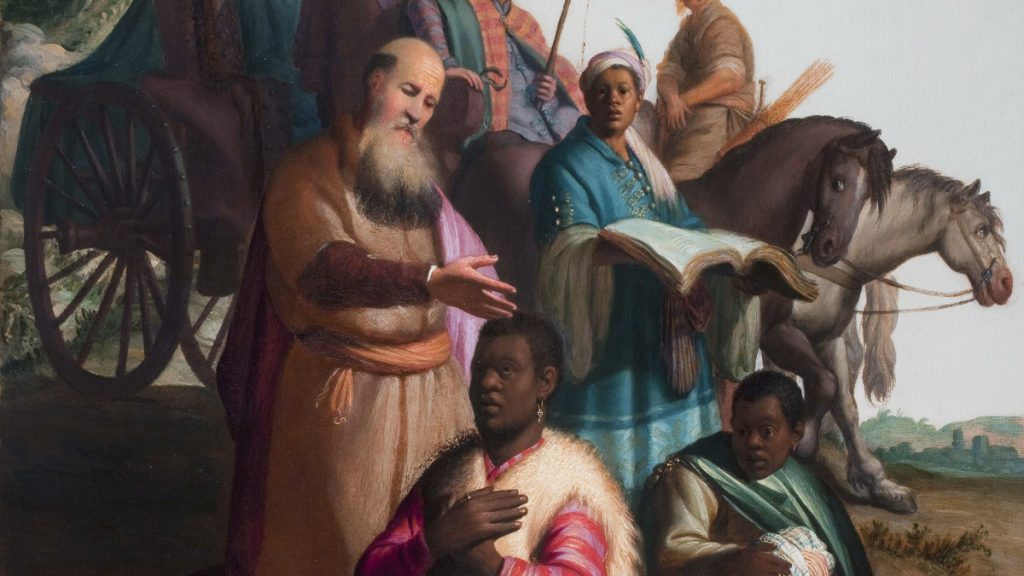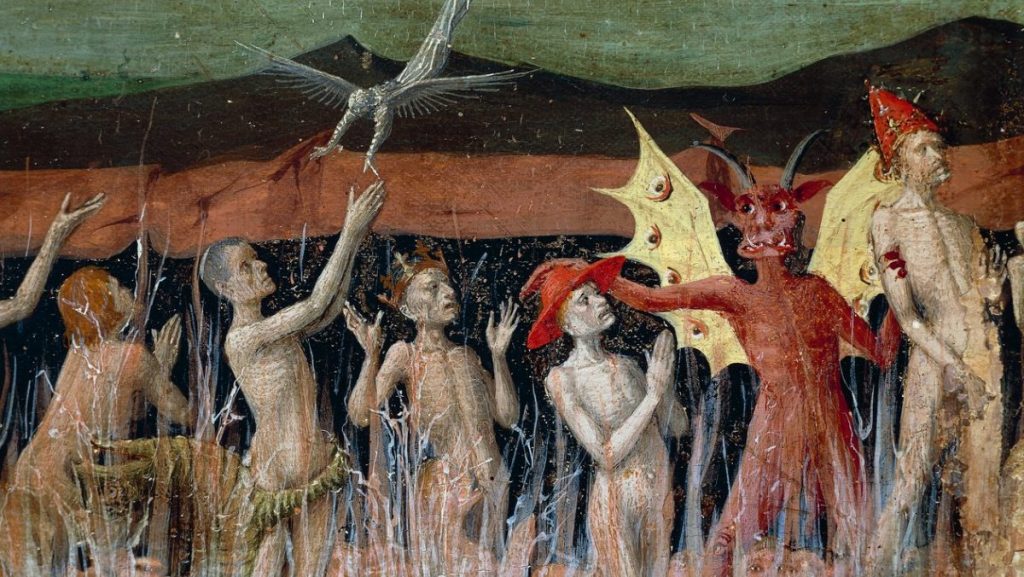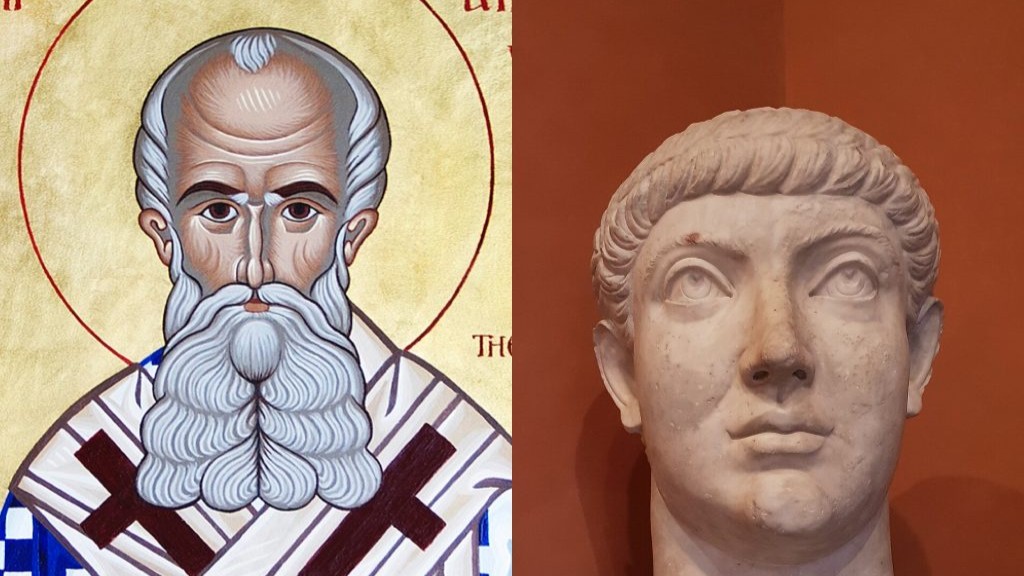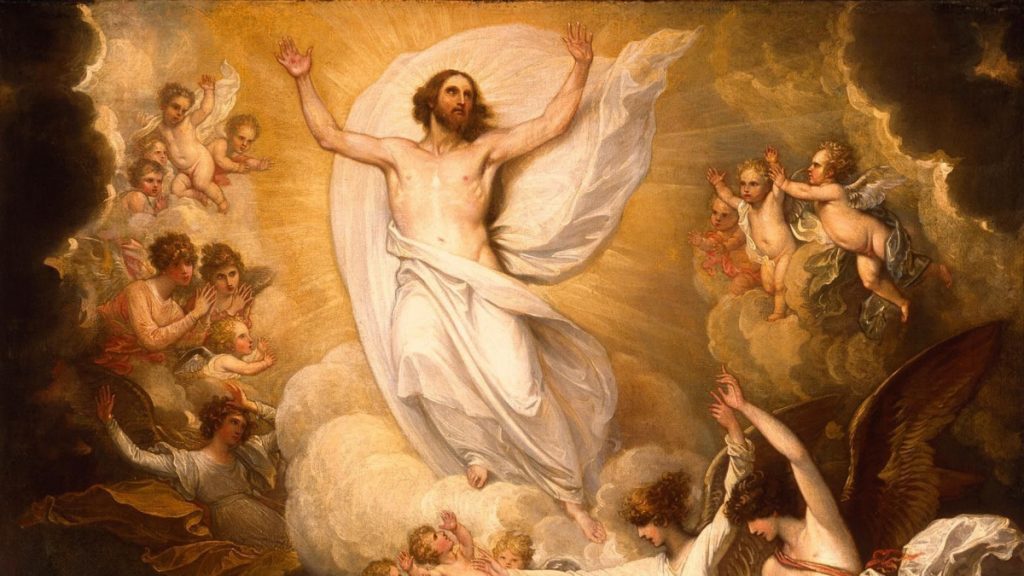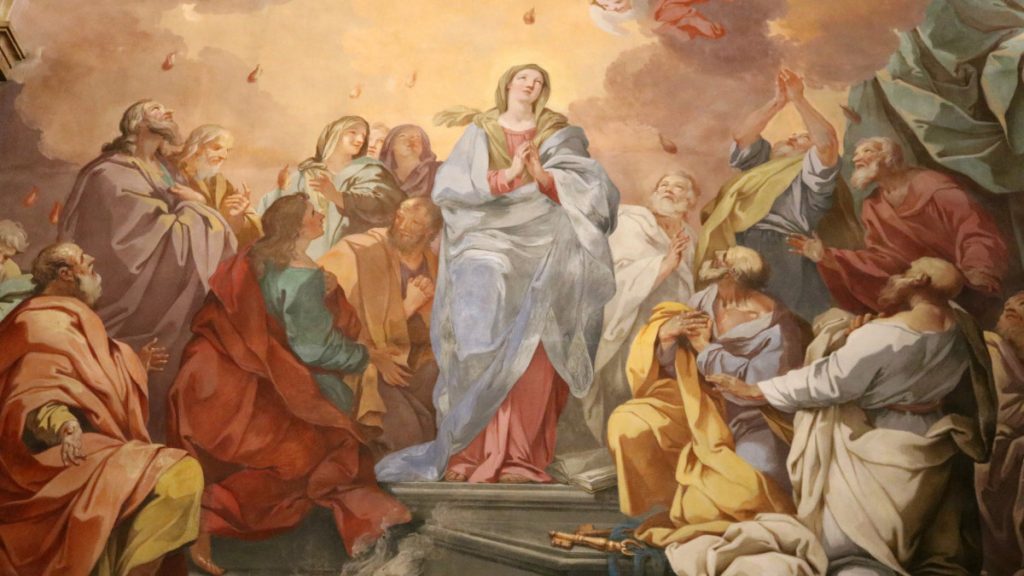(Updated July 26, 2025)
This Author Quote Archive collects pertinent quotes from the Church Father, St. Gregory of Nyssa.
Next to each quote are the Topic Quote Archives in which they are included.
This Quote Archive is being continuously updated as research continues. Quotes marked with “***” have not yet been organized into their respective Topic Quote Archives.
Treatises
St. Gregory of Nyssa, Against Eunomius (c. 364-65)
And yet if those had been the more appropriate names, the Truth Himself would not have been at a loss to discover them, nor those men either, on whom successively devolved the preaching of the mystery, whether they were from the first eye-witnesses and ministers of the Word, or, as successors to these, filled the whole world with the Evangelical doctrines, and again at various periods after this defined in a common assembly the ambiguities raised about the doctrine; whose traditions are constantly preserved in writing in the churches. If those had been the appropriate terms, they would not have mentioned, as they did, Father, Son, and Holy Ghost, granting indeed it were pious or safe to remodel at all, with a view to this innovation, the terms of the faith; or else they [the successors of the Apostles] were all ignorant men and uninstructed in the mysteries, and unacquainted with what he [Eunomius, the heretic] calls the appropriate names—those men who had really neither the knowledge nor the desire to give the preference to their own conceptions over what had been handed down to us by the voice of God.
[In] the birth by water and the Spirit, Himself led the way in this birth, drawing down upon the water, by His own baptism, the Holy Spirit; so that in all things He became the first-born of those who are spiritually born again, and gave the name of brethren to those who partook in a birth like to His own by water and the Spirit. *** But since it was also meet that He should implant in our nature the power of rising again from the dead, He becomes the “first-fruits of them that slept” (1 Cor. 15:20) and the “first-born from the dead” (Col. 1:18), in that He first by His own act loosed the pains of death [Acts 2:24], so that His new birth from the dead was made a way for us also, since the pains of death, wherein we were held, were loosed by the resurrection of the Lord. Thus, just as by having shared in the washing of regeneration [Tit. 3:5] He became “the first-born among many brethren,” and again by having made Himself the first-fruits of the resurrection, He obtains the name of the “first-born from the dead,” so having in all things the pre-eminence, after that “all old things,” as the apostle says, “have passed away” (2 Cor. 5:17), He becomes the first-born of the new creation of men in Christ by the two-fold regeneration, alike that by Holy Baptism and that which is the consequence of the resurrection from the dead, becoming for us in both alike the Prince of Life [Acts 3:15], the first-fruits, the first-born. ***
(Book 2, §9) ***
In the tradition of the faith delivered by the Truth we are taught to believe in Father, Son, and Holy Spirit.
(Book 4, §6) ***
And let no one interrupt me, by saying that what we confess should also be confirmed by constructive reasoning: for it is enough for proof of our statement, that the tradition has come down to us from our fathers, handed on, like some inheritance, by succession from the apostles and the saints who came after them. They, on the other hand, who change their doctrines to this novelty, would need the support of arguments in abundance, if they were about to bring over to their views, not men light as dust, and unstable, but men of weight and steadiness. But so long as their statement is advanced without being established, and without being proved, who is so foolish and so brutish as to account the teaching of the evangelists and apostles, and of those who have successively shone like lights in the churches, of less force than this undemonstrated nonsense?
St. Gregory of Nyssa, The Great Catechism (c. 380)
(Summary; Ch. 37)
(Summary) Ch. 37—The Eucharist unites the body, as Baptism the soul, to God. Our bodies, having received poison, need an Antidote; and only by eating and drinking can it enter. One Body, the receptacle of Deity, is this Antidote, thus received. But how can it enter whole into each one of the Faithful? This needs an illustration. Water gives its own body to a skin-bottle. So nourishment (bread and wine) by becoming flesh and blood gives bulk to the human frame: the nourishment is the body. Just as in the case of other men, our Savior’s nourishment (bread and wine) was His Body; but these, nourishment and Body, were in Him changed into the Body of God by the Word indwelling. So now repeatedly the bread and wine, sanctified by the Word (the sacred Benediction), is at the same time changed into the Body of that Word; and this Flesh is disseminated amongst all the Faithful.
(Ch. 37) But since the human being is a twofold creature, compounded of soul and body, it is necessary that the saved should lay hold of the Author of the new life through both their component parts.
Accordingly, the soul being fused into Him through faith derives from that the means and occasion of salvation; for the act of union with the life implies a fellowship with the life. But the body comes into fellowship and blending with the Author of our salvation in another way. For as they who owing to some act of treachery have taken poison, allay its deadly influence by means of some other drug (for it is necessary that the antidote should enter the human vitals in the same way as the deadly poison, in order to secure, through them, that the effect of the remedy may be distributed through the entire system), in like manner we, who have tasted the solvent of our nature [Eve eating the fruit?], necessarily need something that may combine what has been so dissolved, so that such an antidote entering within us may, by its own counter-influence, undo the mischief introduced into the body by the poison.
What, then, is this remedy to be? Nothing else than that very Body which has been shown to be superior to death, and has been the First-fruits of our life. For, in the manner that, as the Apostle says, a little leaven assimilates to itself the whole lump, so in like manner that body to which immortality has been given it by God, when it is in ours, translates and transmutes the whole into itself. For as by the admixture of a poisonous liquid with a wholesome one the whole draft is deprived of its deadly effect, so too the immortal Body, by being within that which receives it, changes the whole to its own nature. Yet in no other way can anything enter within the body but by being transfused through the vitals by eating and drinking.
It is, therefore, incumbent on the body to admit this life-producing power in the one way that its constitution makes possible. And since that Body only which was the receptacle of the Deity received this grace of immortality, and since it has been shown that in no other way was it possible for our body to become immortal, but by participating in incorruption through its fellowship with that immortal Body, it will be necessary to consider how it was possible that that one Body, being forever portioned to so many myriads of the faithful throughout the whole world, enters through that portion, whole into each individual, and yet remains whole in itself.
In order, therefore, that our faith, with eyes fixed on logical probability, may harbor no doubt on the subject before us, it is fitting to make a slight digression in our argument, to consider the physiology of the body.
Who is there that does not know that our bodily frame, taken by itself, possesses no life in its own proper subsistence, but that it is by the influx of a force or power from without that it holds itself together and continues in existence, and by a ceaseless motion that it draws to itself what it wants, and repels what is superfluous? When a leathern bottle is full of some liquid, and then the contents leak out at the bottom, it would not retain the contour of its full bulk unless there entered in at the top something else to fill up the vacuum; and thus a person, seeing the circumference of this bottle swollen to its full size, would know that this circumference did not really belong to the object which he sees, but that what was being poured in, by being in it, gave shape and roundness to the bulk.
In the same way the mere framework of our body possesses nothing belonging to itself that is cognizable by us, to hold it together, but remains in existence owing to a force that is introduced into it. Now this power or force both is, and is called, nourishment. But it is not the same in all bodies that require aliment, but to each of them has been assigned a food adapted to its condition by Him who governs Nature. Some animals feed on roots which they dig up. Of others grass is the food, of others different kinds of flesh, but for man above all things bread; and, in order to continue and preserve the moisture of his body, drink, not simply water, but water frequently sweetened with wine, to join forces with our internal heat.
He, therefore, who thinks of these things, thinks by implication of the particular bulk of our body. For those things by being within me became my blood and flesh, the corresponding nutriment by its power of adaptation being changed into the form of my body.
With these distinctions we must return to the consideration of the question before us. The question was, how can that one Body of Christ vivify the whole of mankind, all, that is, in whomsoever there is Faith, and yet, though divided amongst all, be itself not diminished? Perhaps, then, we are now not far from the probable explanation. If the subsistence of every body depends on nourishment, and this is eating and drinking, and in the case of our eating there is bread and in the case of our drinking water sweetened with wine, and if, as was explained at the beginning, the Word of God, Who is both God and the Word, coalesced with man’s nature, and when He came in a body such as ours did not innovate on man’s physical constitution so as to make it other than it was, but secured continuance for His own body by the customary and proper means, and controlled its subsistence by meat and drink, the former of which was bread—just, then, as in the case of ourselves, as has been repeatedly said already, if a person sees bread he also, in a kind of way, looks on a human body, for by the bread being within it the bread becomes it, so also, in that other case, the body into which God entered, by partaking of the nourishment of bread, was, in a certain measure, the same with it; that nourishment, as we have said, changing itself into the nature of the body. For that which is peculiar to all flesh is acknowledged also in the case of that flesh, namely, that that Body too was maintained by bread; which Body also by the indwelling of God the Word was transmuted to the dignity of Godhead.
Rightly, then, do we believe that now also the bread which is consecrated by the Word of God is changed into the Body of God the Word. For that Body was once, by implication, bread, but has been consecrated by the inhabitation of the Word that tabernacled in the flesh.
Therefore, from the same cause as that by which the bread that was transformed in that Body was changed to a Divine potency, a similar result takes place now. For as in that case, too, the grace of the Word used to make holy the Body, the substance of which came of the bread, and in a manner was itself bread, so also in this case the bread, as says the Apostle, “is sanctified by the Word of God and prayer” (1 Tim. 4:5); not that it advances by the process of eating to the stage of passing into the body of the Word, but it is at once changed into the body by means of the Word, as the Word itself said, “This is My Body.” Seeing, too, that all flesh is nourished by what is moist (for without this combination our earthly part would not continue to live), just as we support by food which is firm and solid the solid part of our body, in like manner we supplement the moist part from the kindred element; and this, when within us, by its faculty of being transmitted, is changed to blood, and especially if through the wine it receives the faculty of being transmuted into heat. Since, then, that God-containing flesh partook for its substance and support of this particular nourishment also, and since the God who was manifested infused Himself into perishable humanity for this purpose, viz. that by this communion with Deity mankind might at the same time be deified, for this end it is that, by dispensation of His grace, He disseminates Himself in every believer through that flesh, whose substance comes from bread and wine, blending Himself with the bodies of believers, to secure that, by this union with the immortal, man, too, may be a sharer in incorruption. He gives these gifts by virtue of the benediction through which He transelements the natural quality of these visible things [bread and wine] to that immortal thing [His body and blood].
St. Gregory of Nyssa, On the Soul and the Resurrection (c. 382)
*** If on the other hand any one will accept a discussion which is in a naked unsyllogistic form, we will speak upon these points by making our study of them so far as we can follow the chain of Scriptural tradition… *** Just as those who refine gold from the dross which it contains not only get this base alloy to melt in the fire, but are obliged to melt the pure gold along with the alloy, and then while this last is being consumed the gold remains, so, while evil is being consumed in the purgatorial fire, the soul that is welded to this evil must inevitably be in the fire too, until the spurious material alloy is consumed and annihilated by this fire…If, then whether by forethought here, or by purgation hereafter, our soul becomes free from any emotional connection with the brute creation, there will be nothing to impede its contemplation of the Beautiful; for this last is essentially capable of attracting in a certain way every being that looks towards it. If, then, the soul is purified of every vice, it will most certainly be in the sphere of Beauty. The Deity is in very substance Beautiful; and to the Deity the soul will in its state of purity have affinity, and will embrace It as like itself.
St. Gregory of Nyssa, On Virginity
(Ch. 11) ***
But each may gather in abundance for himself suggestions towards this end out of either Covenant in the inspired writings; the Prophets and the Law are full of them; and also the Gospel and the Traditions of the Apostles. What we ourselves have conjectured in following out the thoughts of those inspired utterances is this.
Sermons
St. Gregory of Nyssa, Sermon on the Dead (c. 382)1
If a man distinguishes in himself what is peculiarly human from what is irrational, and if he be on the watch for a life of greater urbanity for himself, in this present life he will purify himself of any evil contracted, and overcome the irrational by reason. If he has inclined to the irrational pressure of the passions…he may afterward, in a very different manner, be very much interested in what is better, when, after his departure out of the body, he gains knowledge of the difference between virtue and vice and finds that he is not able to partake of divinity until he has been purged of the filthy contagion in his soul by the purifying fire.
St. Gregory of Nyssa, Catechetical Discourse
- Development of Doctrine | Part 2, Ch. 3, §§2-3
- Christendom: The Defeat of the Demons | Part 3, Ch. 18, §§1-3
- The Blessed Sacrament of the Holy Eucharist | Part 3, Ch. 18, §§2-3
(Part 2, Ch. 3, §§2-3)2
(§2) For in hypostasis the Spirit is one thing and the Word another, and another again is he to whom the Word and the Spirit belong. But whenever you understand the distinction in these, again, the unity of nature does not admit partition, so that neither is the might of the monarchy split, being cut up into differing divinities, nor does the discourse agree with Jewish teaching, but the truth passes through the mean of the two suppositions, casting down each of the heresies and accepting what is useful from each. For the teaching of the Jew is overturned both by the acceptance of the Word and by faith in the Spirit, while the Hellenists’ polytheistic error is destroyed, the unity of nature abolishing the fantasy of multiplicity.
(§3) And again, once more, from the Jewish supposition let the unity of the nature remain, and from Hellenism only the distinction of hypostases, each correspondingly healing the other’s impious conjecture: for just as the number of the Trinity is a healing for those in error about the one [nature], the principle of unity [is a healing] for those [whose thought is] scattered in a multitude [of gods].
(Part 3, Ch. 18, §§1-3)3
(§1) And yet perhaps it is superfluous for those who believe that God has sojourned in [human] life to object to [his] presence as not taking place with wisdom and superior reason; for those who are not violent in fighting against the truth there is no small proof of the divine sojourn, one that is manifest in the present life even before the life to come—I mean the testimony of the facts themselves.
(§2) For who does not know how the deceit of demons had filled every part of the inhabited world, having mastered the life of men through the madness of idolatry? [Or] how this was customary for all the peoples in the world, worshiping demons by means of idols, with animal sacrifice and pollutions upon [their] altars? 103 | 104
(§3) But from when, as the Apostle says, “the saving grace of God appeared to all men” (Tit. 2:11) by sojourning in human nature, all like smoke departed into non-being, so that the madness of oracles and soothsayers ceased, annual processions and the blemishes of the blood of hecatombs was abolished, and among most of the peoples altars and temple gateways and sacred precincts by the worshipers of demons to the deception both of themselves and of those who chanced upon them, so that in many of the places it is not even remembered if these things had ever happened, but in all the inhabited world temples and altars have arisen in Christ’s name, and the august and bloodless priesthood, and the lofty philosophy, which is directed more by deed than by word, and contempt for bodily life and disdain for death, which those who were compelled by tyrants to abandon the faith manifestly exhibited, accepting the body’s torments and the sentence of death as if it were nothing. 104 | 105
Obviously they would not withstand these things unless they had a clear and indisputable proof of the divine sojourn.
Footnotes
- Jimmy Akins, The Fathers Know Best: Your Essential Guide to the Teachings of the Early Church (San Diego: Catholic Answers Press, 2010), 389-90. ↩︎
- St. Gregory of Nyssa, Ignatius Green, trans., Popular Patristics, Vol. 60: Saint Gregory of Nyssa, Catechetical Discourse, A Handbook for Catechists (Yonkers, NY: St. Vladimirʼs Seminary Press, 2019), 69. ↩︎
- St. Gregory of Nyssa, Ignatius Green, trans., Popular Patristics, Vol. 60: Saint Gregory of Nyssa, Catechetical Discourse, A Handbook for Catechists (Yonkers, NY: St. Vladimirʼs Seminary Press, 2019), 103-105. ↩︎
